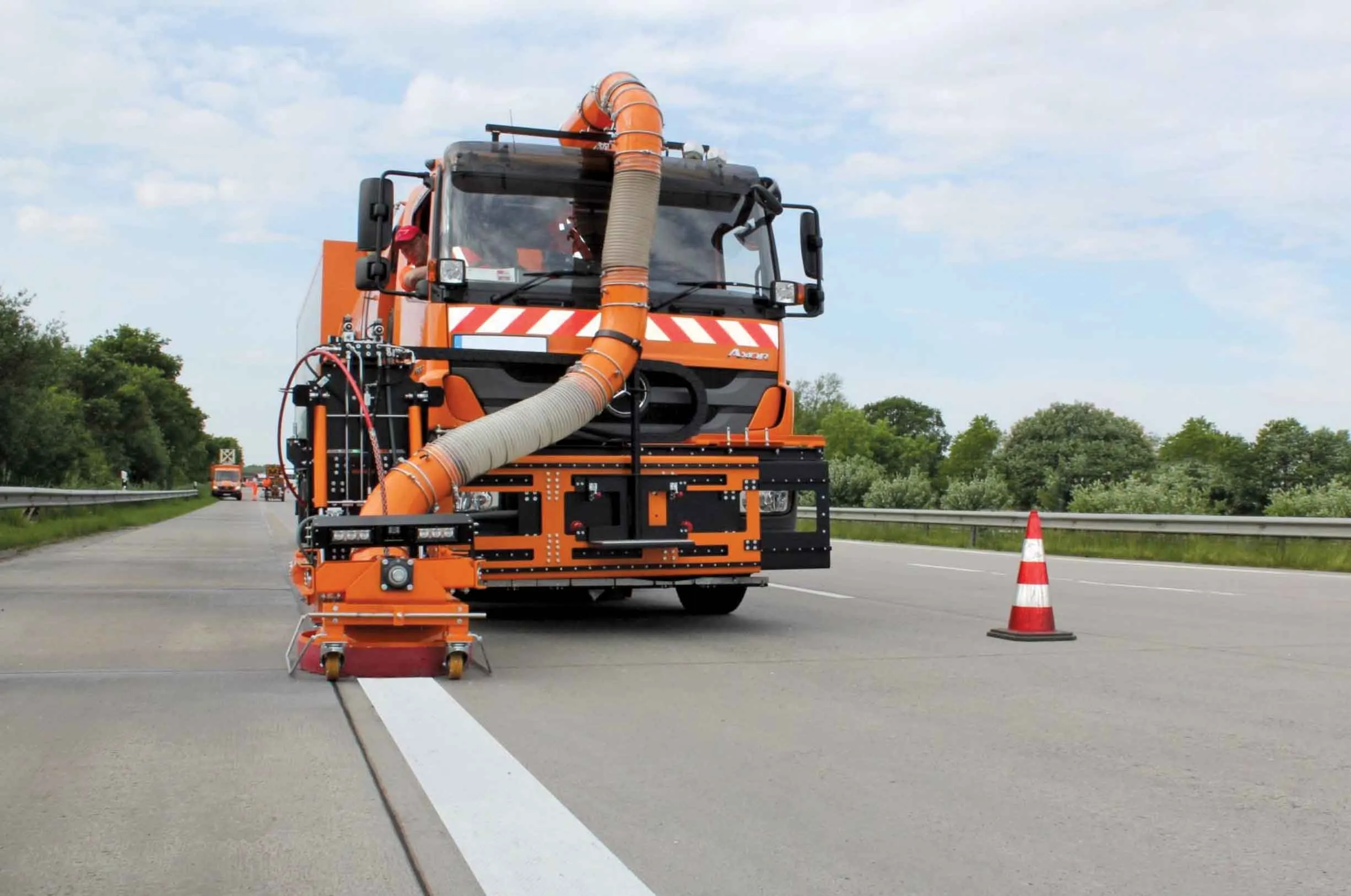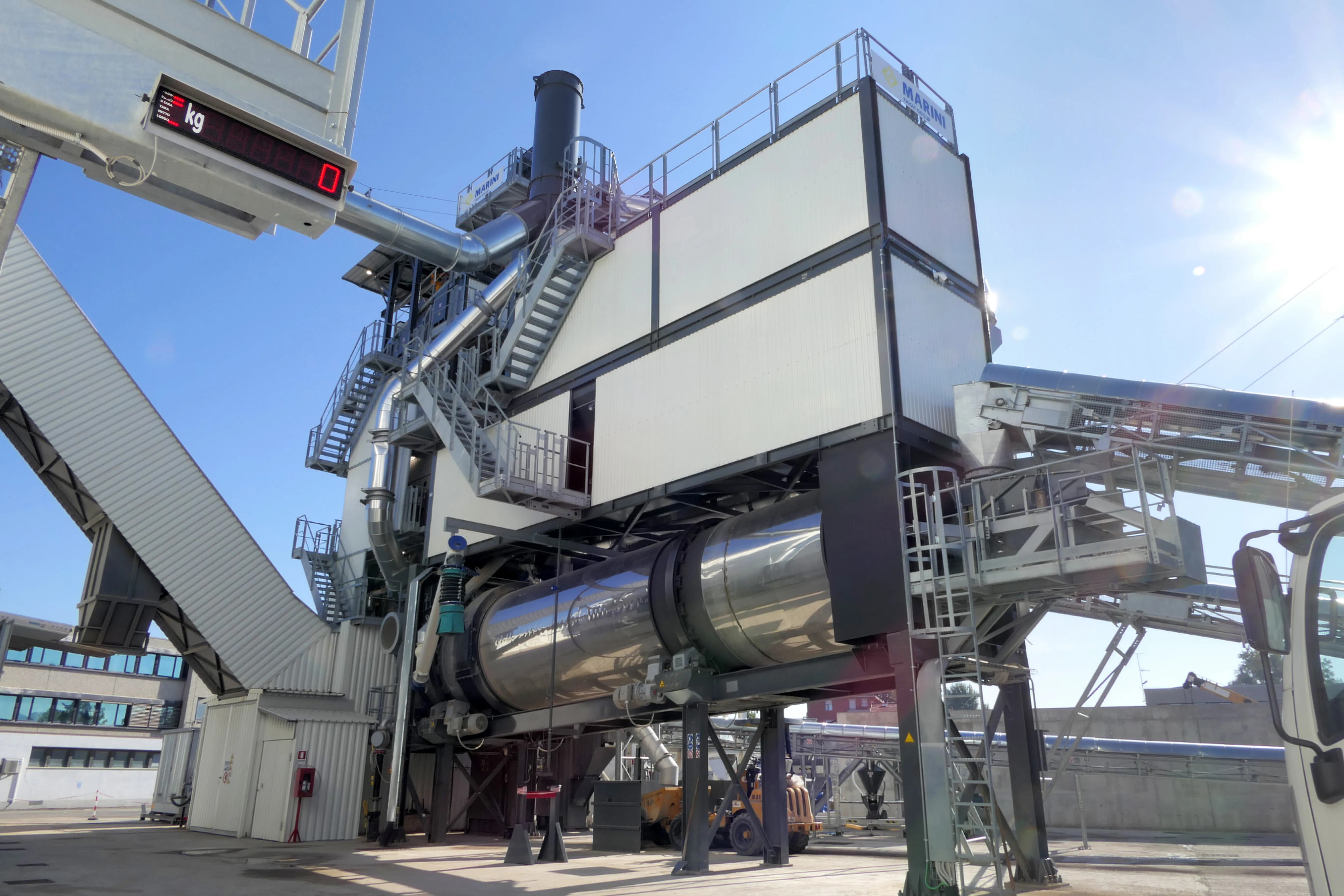The Twister, from German manufacturer Traffic-lines, represents an alternative method for removing road markings. Traffic-lines says that its environmentally friendly method uses nothing but water. The system attacks the relevant area with a high-pressure water jet and then immediately sucks the used water back up together with the removed material. It uses a highly efficient suction action which means that there is no water residue left on the cleaned-up road surface. Traffic-lines says the machine is uniq
July 5, 2016
Read time: 2 mins

The Twister, from German manufacturer Traffic-lines, represents an alternative method for removing road markings
8452 Traffic-lines says that its environmentally friendly method uses nothing but water.
The system attacks the relevant area with a high-pressure water jet and then immediately sucks the used water back up together with the removed material. It uses a highly efficient suction action which means that there is no water residue left on the cleaned-up road surface.
Traffic-lines says the machine is unique in the market because there is no accumulation of water inside the suction hood. This enables a very noticeable increase in performance compared to conventional hydro-blasting with the same pump performance.
The Twister also has another advantage: after removing the markings, the machine leaves the road surface dry while producing significantly less siltation. The result is better adhesion of newly applied markings, which increases durability for the markings. Traffic-lines also makes ex 1.0, a patented, liquid marking removal additive that is biologically degradable.
Traffic-lines ex 1.0 helps loosen markings from surfaces without attacking those surfaces so that the old markings can then be removed by hydro-blasting. The process leaves as little residue as possible while minimising surface damage. Removing markings with the aid of Traffic-lines' ex 1.0 involves hardly any elution of bitumen and the aggregate is not exposed.
The system attacks the relevant area with a high-pressure water jet and then immediately sucks the used water back up together with the removed material. It uses a highly efficient suction action which means that there is no water residue left on the cleaned-up road surface.
Traffic-lines says the machine is unique in the market because there is no accumulation of water inside the suction hood. This enables a very noticeable increase in performance compared to conventional hydro-blasting with the same pump performance.
The Twister also has another advantage: after removing the markings, the machine leaves the road surface dry while producing significantly less siltation. The result is better adhesion of newly applied markings, which increases durability for the markings. Traffic-lines also makes ex 1.0, a patented, liquid marking removal additive that is biologically degradable.
Traffic-lines ex 1.0 helps loosen markings from surfaces without attacking those surfaces so that the old markings can then be removed by hydro-blasting. The process leaves as little residue as possible while minimising surface damage. Removing markings with the aid of Traffic-lines' ex 1.0 involves hardly any elution of bitumen and the aggregate is not exposed.








